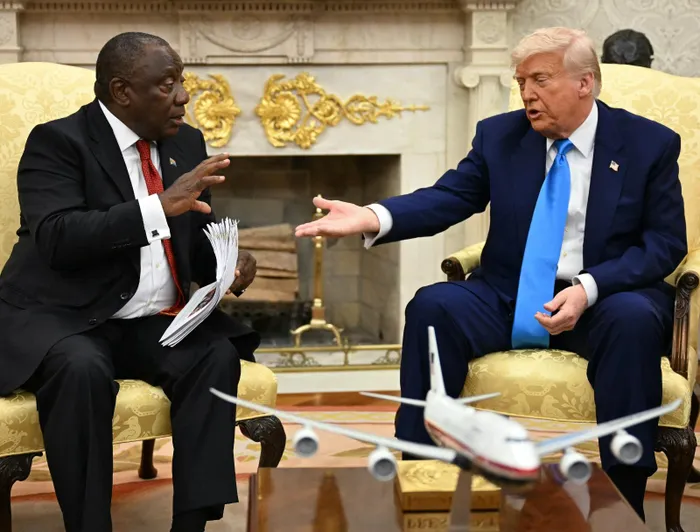Trump uses aid to silence Africa

In May, the South African delegation was ambushed at the White House when the Trump administrators brought up the widely discredited theory of white "genocide" against white South African Afrikaners by Pretoria. When this happened, the African voice was not heard in defence of South Africa.
Image: File/ AFP
When Donald Trump attacked South Africa during the recently concluded G20 summit, only a few European countries, namely the United Kingdom, Canada, Germany, and France, stood up for Pretoria.
Disappointingly, most African countries remained in their corner and kept silent.
To think that South Africa is a powerful African voice in global politics, as a member of the Southern African Development Community (SADC) as well as a long-standing member of the African Union, brings up a lot of questions about African unity, so often spoken about during the AU yearly meeting in Addis Ababa.
The deafening silence from African peers has been consistent.
In May, the South African delegation was ambushed at the White House when the Trump administrators brought up the widely discredited theory of white "genocide" against white South African Afrikaners by Pretoria. When this happened, the African voice was not heard in defence of South Africa.
Detractors are now urging that this is the same silence that led to Muammar Gaddafi, the late Libyan leader, who was toppled by a NATO-backed uprising in 2011. He received no African support when he was toppled. He was assassinated by Libyan rebel forces in the same year he was removed from power.
Critics are questioning the concept of "unity," which is discussed at Addis Ababa meetings every January, asking what purpose it serves if African leaders cannot stand together in critical moments.
But what could be behind this silence? Well-respected commentators believe that silence could lie behind dependency on U.S. aid and incentives.
The US gave Africa about $20 billion in aid in 2023; by 2024, that amount had dropped to an estimated $12.7 billion.
Although the US continues to be a major donor, particularly for humanitarian and health-related initiatives like PEPFAR and Feed the Future, this is part of a broader decline in US foreign aid.
While it appears that the Trump administration is succeeding in dividing Africa, there is light at the end of the tunnel. Trump and his anti-South African government will not be in power indefinitely.
We will renew our friendship with the United States.